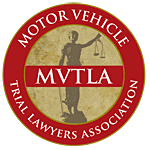Trucking accidents can have devastating consequences, leaving victims with severe injuries and emotional trauma. Determining liability in such cases is crucial to ensure justice is served and victims receive the compensation they deserve. In this blog post, we will explore the factors that determine when a trucking company is liable for a truck accident. If you or a loved one have been involved in a truck accident, it is essential to understand your rights and seek legal guidance from professionals like The Rotatori Law Firm in Southbury, CT.
Employment Relationship
One of the primary factors that can establish a trucking company's liability is the employment relationship between the company and the truck driver. If the truck driver is an employee of the company, the company can be held responsible for the driver's actions while on duty. This includes accidents that occur during the course of employment, such as transporting goods or making deliveries. In such cases, the trucking company is considered vicariously liable for the driver's negligence.
Negligent Hiring and Training
Trucking companies have a legal obligation to ensure that their drivers are qualified and adequately trained. If a trucking company hires an unqualified or inexperienced driver and that driver causes an accident, the company can be held liable for negligent hiring. Similarly, if the company fails to provide proper training or allows a driver to operate a vehicle without the necessary skills, they may be held accountable for negligent training.
Inadequate Maintenance and Inspection
Trucking companies are responsible for the maintenance and inspection of their vehicles. Failure to properly maintain and inspect trucks can lead to accidents caused by mechanical failures, such as brake or tire issues. If it's determined that a trucking company neglected its maintenance and inspection duties, resulting in an accident, they can be held liable for the damages.
Overloading and Cargo Issues
Improperly loaded or overloaded trucks can become dangerous hazards on the road. Trucking companies must ensure that cargo is loaded securely and within legal weight limits. If an accident occurs due to shifting cargo or overloading, the trucking company may be liable for not adhering to safety regulations.
Violations of Regulations
The trucking industry is heavily regulated to ensure safety on the roads. Trucking companies are expected to comply with federal and state regulations, including hours-of-service rules, weight limits, and driver rest requirements. If a trucking company encourages or turns a blind eye to violations of these regulations, and an accident ensues, they can be held liable for their negligence.
Negligent Supervision
Trucking companies must provide appropriate supervision of their drivers. If a company fails to monitor and address issues like driver fatigue, substance abuse, or reckless behavior, and an accident occurs as a result, they may be held liable for negligent supervision.
Failure to Maintain Records
Accurate record-keeping is a fundamental requirement in the trucking industry. Trucking companies must maintain records of driver qualifications, vehicle maintenance, and hours of service. If a company fails to keep these records up-to-date and an accident happens, they can face liability for non-compliance.
Understanding when a trucking company is liable for a truck accident is crucial for victims seeking justice and rightful compensation. The Rotatori Law Firm in Southbury, CT, specializes in personal injury cases and can provide the legal expertise needed to navigate such complex situations. If you or a loved one have been involved in a truck accident, don't hesitate to reach out for a consultation and ensure your rights are protected.




